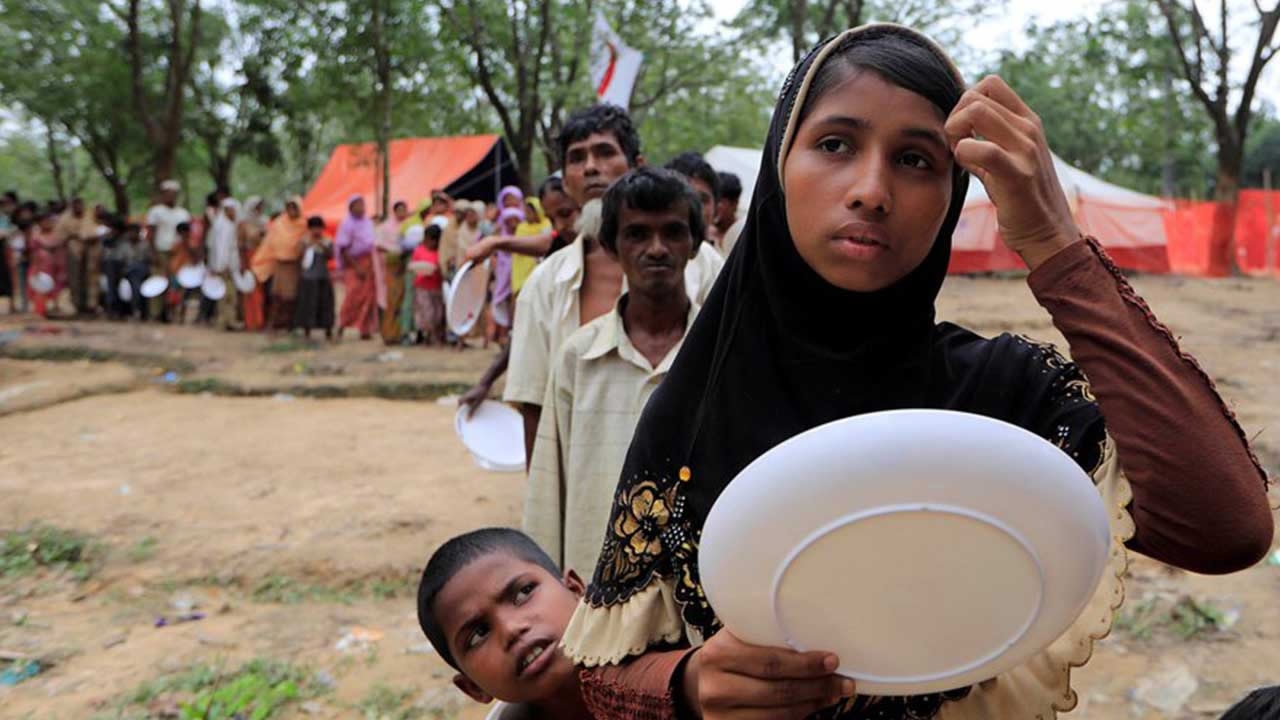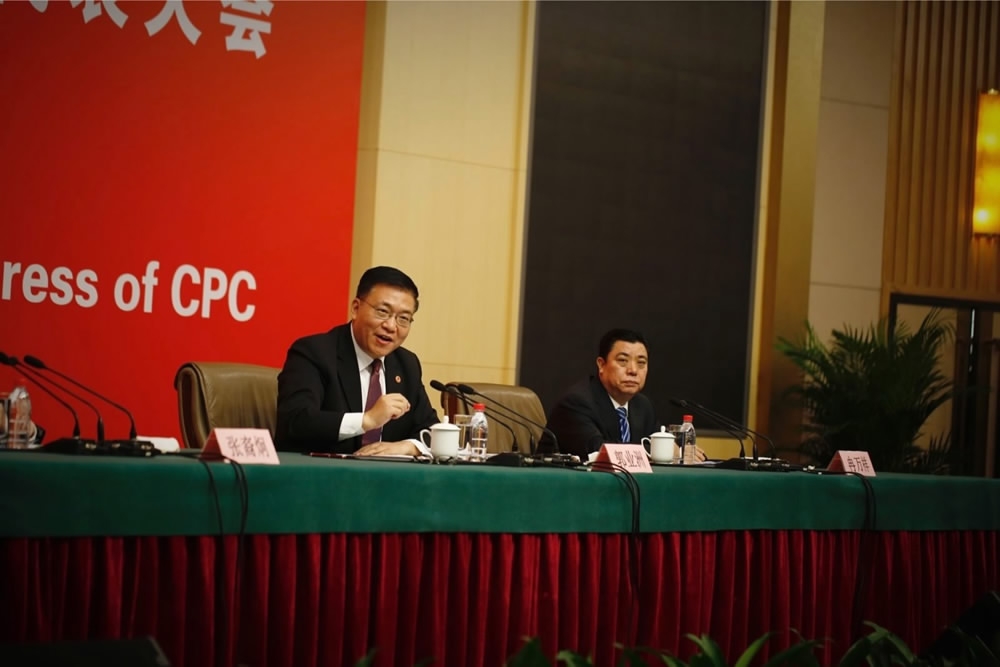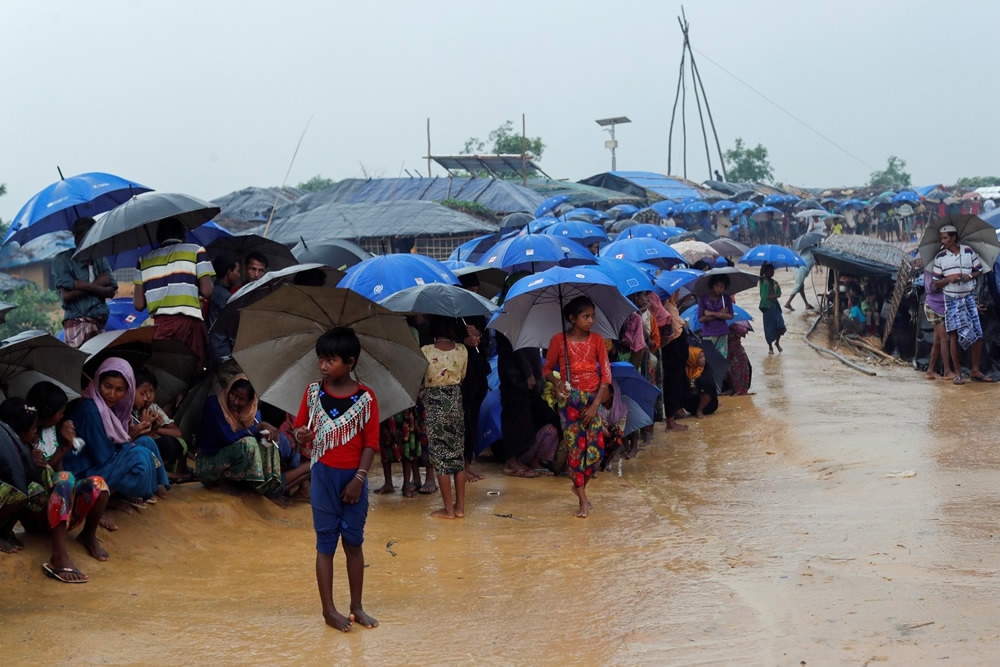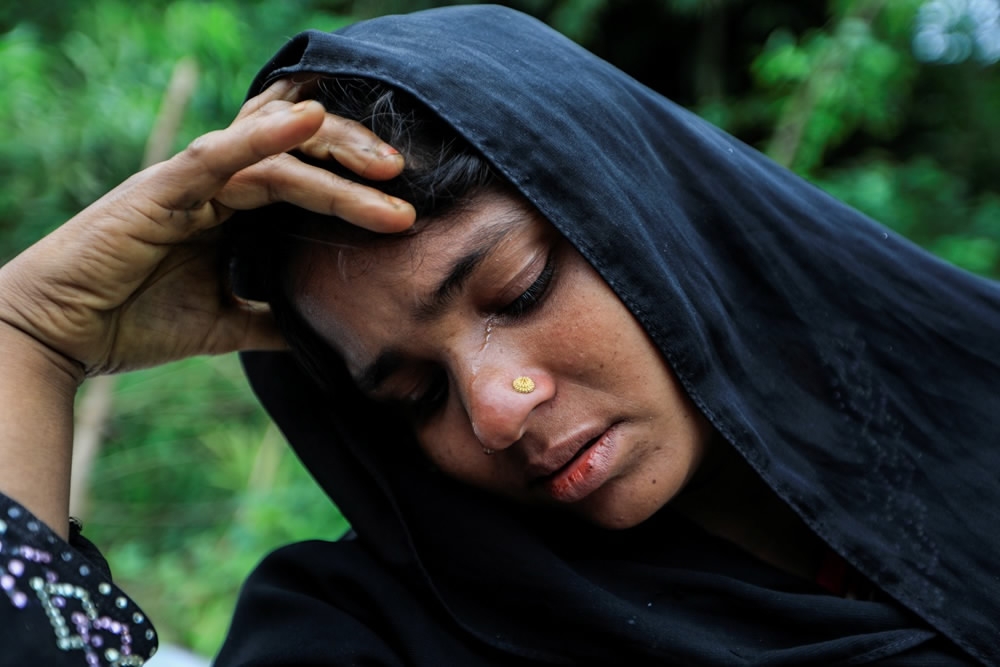
Politics
22:29, 21-Oct-2017
Why China does not interfere in Myanmar's Rohingya crisis
CGTN

As some Western countries blame Myanmar's leader Aung San Suu Kyi over the ongoing Rohingya crisis, an official of the Communist Party of China (CPC) explained on Saturday why Beijing was taking a different approach.
Guo Yezhou, Vice Minister of the International Department of the CPC Central Committee, referred to China's long-held principle of non-interference in other countries' internal affairs, saying that Beijing knew "the consequences of external interference in another country."
At a press conference on the sidelines of the 19th CPC National Congress, he said: "Based on experience, you can see recently the consequences when one country interferes in another. We won't do it."

Guo Yezhou, Vice Minister of the International Department of the CPC Central Committee (L), speaks at a press conference in Beijing, October 21, 2017. /CGTN Photo
Guo Yezhou, Vice Minister of the International Department of the CPC Central Committee (L), speaks at a press conference in Beijing, October 21, 2017. /CGTN Photo
Instability in North Africa has created serious refugee problems in southern Europe, though the Mediterranean separates the two, Guo indicated, suggesting that instability in Myanmar could spill over the border into China.
China and Myanmar have a deep, long-standing friendship, and China believes Myanmar can handle its problems on its own, he added.
UN: Rohingya children threatened by diseases
Nearly 590,000 Rohingya refugees have been admitted to camps in Bangladesh, and 320,000 refugee children among them are threatened by water-borne diseases and desperate living conditions, a UN spokesman said Friday.

Rohingya refugees queue in the rain to receive food at Kotupalang refugee camp near Cox's Bazar, Bangladesh, October 20, 2017. /Reuters Photo
Rohingya refugees queue in the rain to receive food at Kotupalang refugee camp near Cox's Bazar, Bangladesh, October 20, 2017. /Reuters Photo
The Office for the Coordination of Humanitarian Affairs (OCHA) reported that 589,000 Rohingyas had fled Myanmar's northern Rakhine State since alleged retaliation following a deadly rebel militia attack on August 25 against police posts, said Farhan Haq, the UN spokesman.
The UN refugee agency (UNHCR) said nearly 7,000 of the refugees had been admitted to Bangladesh after spending up to four days stranded near the border. "Thousands more are believed to be on their way from Myanmar."
The most vulnerable among the new arrivals are taken by bus from the border to a transit center, where the UNHCR and its partners provide food, water, medical checks and temporary shelter, Haq said.

A Rohingya refugee woman cries while waiting to get a shelter in Kotupalang refugee camp near Cox's Bazar, Bangladesh, October 21, 2017. /Reuters Photo
A Rohingya refugee woman cries while waiting to get a shelter in Kotupalang refugee camp near Cox's Bazar, Bangladesh, October 21, 2017. /Reuters Photo
The UN Children's Agency (UNICEF) said that desperate living conditions and water-borne diseases are threatening more than 320,000 Rohingya refugee children.
(With inputs from Xinhua)
3095km

SITEMAP
Copyright © 2018 CGTN. Beijing ICP prepared NO.16065310-3
Copyright © 2018 CGTN. Beijing ICP prepared NO.16065310-3